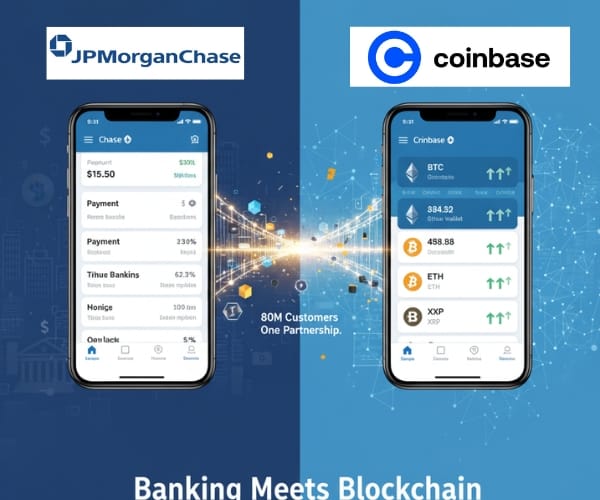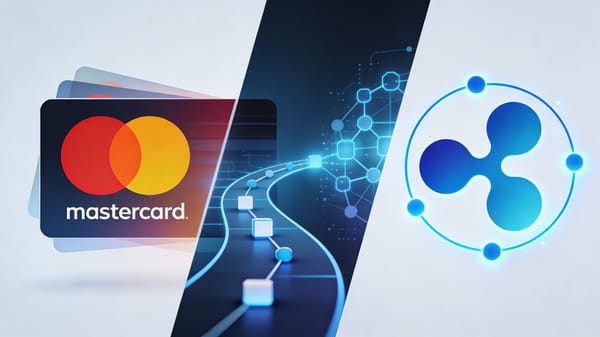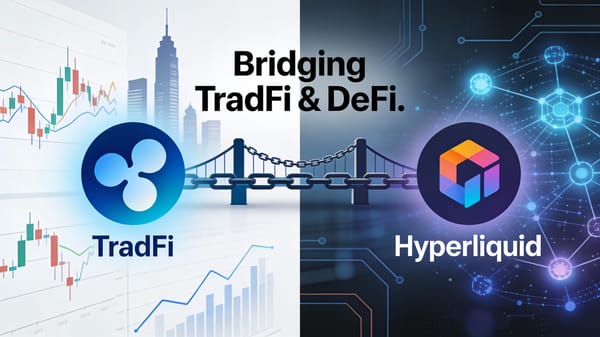JPMorgan Chase and Coinbase Form Strategic Partnership to Revolutionize Crypto Access
JPMorgan Chase & Coinbase launch game-changing partnership: 80M customers gain crypto access via credit cards, bank linking, and rewards points. First major bank to convert loyalty points to crypto. Digital assets go mainstream.

In a landmark move that signals the mainstreaming of digital assets, JPMorgan Chase and Coinbase announced a strategic partnership on July 30, 2025, designed to make cryptocurrency purchases easier than ever for the bank's 80 million customers. This collaboration introduces groundbreaking features that bridge traditional banking with the crypto ecosystem, marking a dramatic shift in institutional attitudes toward digital assets.
Banking Meets Blockchain: What's in the Partnership
The partnership introduces three major innovations that will roll out in phases beginning Fall 2025. Chase customers will gain the ability to use their Chase credit cards to fund Coinbase accounts, with this feature expected to launch in Fall 2025. Starting in 2026, customers will be able to link their Chase bank accounts directly to Coinbase wallets through JPMorgan's secure API, bypassing third-party data aggregators like Plaid and enhancing security and privacy.
Perhaps most revolutionary is the ability for Chase customers to transfer their Chase Ultimate Rewards points to Coinbase accounts at a conversion rate of 100 points to $1 in USDC stablecoin. This marks the first time a major U.S. credit card rewards program has enabled point-to-crypto conversion, transforming loyalty rewards into a gateway for digital asset adoption.
"This partnership marks a significant step forward in empowering our customers to take control of their financial futures," said Melissa Feldsher, Head of Payments and Lending Innovation for JPMorgan Chase. "By joining forces with Coinbase, we are enhancing the security and privacy of our customers' data, allowing them to use their money and rewards in new and exciting ways."
The Bigger Picture: Why This Matters Now
This announcement arrives during a period of unprecedented regulatory clarity for the crypto industry. On July 18, 2025, President Trump signed the GENIUS Act (Guiding and Establishing National Innovation for U.S. Stablecoins Act) into law, establishing the first federal regulatory framework for dollar-pegged stablecoins. The legislation, which passed with strong bipartisan support in both the Senate (68-30) and House (308-122), requires stablecoin issuers to maintain 100% reserve backing with liquid assets and comply with strict anti-money laundering requirements.
The regulatory shift has emboldened traditional financial institutions to embrace crypto services. Several major banks have recently announced similar initiatives, including PNC Bank's partnership with Coinbase and BNY Mellon's custody services for Ripple's new stablecoin, Ripple USD. Deutsche Bank research indicates that stablecoin transactions reached $28 trillion in 2024, surpassing the combined transaction volume of Visa and Mastercard.
The partnership also addresses a significant technical and compliance challenge. By creating a direct API connection between Chase and Coinbase, JPMorgan eliminates reliance on data aggregators, which the bank has noted were "massively taxing" its systems by accessing customer data multiple times daily. This direct integration allows JPMorgan to enforce enhanced compliance measures, including real-time risk monitoring, know-your-customer (KYC) standards, and transaction limits that align with banking regulatory requirements.
Market Implications: A Crypto Catalyst
Financial analysts are bullish on the partnership's potential impact. Bernstein analysts described the deal as "a major unlock for crypto adoption," noting that it positions Coinbase as core blockchain infrastructure for major U.S. banks rather than merely a trading venue. The firm maintains an outperform rating on Coinbase stock with a $510 price target. Coinbase shares rose 2.7% following the announcement.
The broader crypto market stands to benefit from increased accessibility. With JPMorgan's vast customer base gaining streamlined access to digital assets, analysts expect significant growth in crypto adoption. JPMorgan's own research projects that crypto exchange-traded products (ETPs) for assets like Solana could attract $3 billion to $6 billion in new assets within 6 to 12 months, while XRP ETPs could garner $4 billion to $8 billion.
The partnership extends beyond consumer services. In June 2025, JPMorgan launched JPMD, a deposit token on Coinbase's Base blockchain (an Ethereum Layer 2 network) designed for institutional clients. Unlike stablecoins, which are primarily used by retail customers, JPMD represents a bank deposit managed with blockchain technology, enabling 24/7 settlement and cross-border payments for corporations and pension funds. This dual approach—consumer-facing crypto access through the Coinbase partnership and institutional-grade tokenized deposits through JPMD—positions JPMorgan at the forefront of both retail and institutional crypto adoption.
XRP and Ripple: Implications for the Ecosystem
The JPMorgan-Coinbase partnership carries significant implications for XRP and Ripple's position in the digital payments landscape. While JPMorgan has historically maintained partnerships with Ripple and acknowledged XRP's utility in cross-border payments, the bank has primarily leveraged RippleNet technology without directly using XRP as a bridge asset.
JPMorgan's focus on USDC through the Coinbase partnership and its proprietary JPMD deposit token signals a strategic preference for stablecoins and tokenized bank deposits over volatile cryptocurrencies like XRP. This trend reflects broader industry dynamics where banks seek the speed and efficiency benefits of blockchain technology without exposure to crypto price volatility. As one industry analysis notes, banks using RippleNet don't necessarily impact XRP's demand because they benefit from Ripple's network without using XRP as a bridge asset.
However, the partnership could indirectly benefit XRP and the broader crypto ecosystem in several ways. The increased legitimacy of crypto services within traditional banking may accelerate institutional comfort with digital assets generally. With Coinbase supporting XRP trading, Chase customers gaining easier access to the platform could drive increased XRP trading volume and liquidity. Additionally, the regulatory clarity provided by the GENIUS Act creates a more favorable environment for all digital assets, potentially easing concerns that have historically limited bank adoption of cryptocurrencies like XRP.
JPMorgan's research has previously indicated that if Ripple successfully resolves regulatory uncertainties and XRP trading resumes on major exchanges without restrictions, the token could see significant adoption. The bank has acknowledged XRP's potential role in unlocking $120 billion in value trapped in inefficient cross-border payment systems, though it has cited crypto volatility as a limiting factor for bank adoption.
The competitive dynamic between JPMorgan's JPMD, USDC, and XRP highlights a critical inflection point in digital payments. Banks may increasingly favor stablecoins and tokenized deposits for institutional use cases while crypto-native assets like XRP compete for retail adoption and specific use cases where decentralization offers advantages. For Ripple, the challenge lies in demonstrating that XRP's unique attributes—particularly its speed, low transaction costs, and established network of payment corridors—provide sufficient value to offset the stability advantages of dollar-pegged alternatives.
Looking ahead, XRP holders and Ripple stakeholders should monitor several key developments: the growth of Ripple's On-Demand Liquidity (ODL) service, which does use XRP for cross-border settlements; potential spot XRP ETF approvals, with multiple applications currently under SEC review; and whether Coinbase expands its Ripple-related offerings following the JPMorgan partnership. If the partnership proves successful and Coinbase gains deeper integration with traditional banking, it could create opportunities for broader XRP adoption through future phases of the collaboration.
Conclusion: A New Era for Digital Assets
The JPMorgan Chase-Coinbase partnership represents a watershed moment in the convergence of traditional finance and cryptocurrency. By offering streamlined access to digital assets through trusted banking channels, leveraging loyalty rewards as an onramp, and implementing bank-grade security and compliance, this collaboration addresses many of the barriers that have historically limited mainstream crypto adoption.
Key takeaways: JPMorgan's 80 million customers will gain unprecedented ease of access to crypto markets starting Fall 2025, with credit card funding arriving first, followed by direct bank account linking and rewards point conversion in 2026. The partnership benefits from favorable regulatory tailwinds created by the GENIUS Act, signaling growing institutional confidence in digital assets. For the broader crypto market, including XRP and Ripple, the partnership validates the maturation of digital assets while intensifying competition between stablecoins, tokenized deposits, and crypto-native payment solutions.
As traditional banking and crypto continue to merge, innovations like the JPMorgan-Coinbase partnership will likely accelerate the transformation of global financial infrastructure, making digital assets as routine as traditional checking accounts.
DISCLAIMER: This newsletter is for informational purposes only and does not constitute investment advice, advertising, or a recommendation to buy, sell, or hold any securities. This content is not sponsored by or affiliated with any of the mentioned entities. Investments in cryptocurrencies or other financial assets carry significant risks, including the potential for total loss, extreme volatility, and regulatory uncertainty. Past performance is not indicative of future results. Always consult a qualified financial professional and conduct thorough research before making any investment decisions.
Sources
- JPMorgan Chase Official Press Release - JPMorgan Chase & Coinbase Partnership Announcement, July 30, 2025
- PYMNTS.com - JPMorgan's Coinbase Partnership Analysis, July 31, 2025
- Fortune Crypto - JPMorgan JPMD Deposit Token Launch, June 18, 2025
- CoinDesk - JPMorgan-Coinbase Partnership Coverage, July 30, 2025
- CoinDesk - Bernstein Analysis - Institutional Crypto Posture Analysis, July 30, 2025
- Banking Dive - Banking Industry Perspective, July 30, 2025
- Bloomberg - JPMorgan and Coinbase Deal Coverage, July 30, 2025
- Yahoo Finance/Benzinga - Partnership Market Analysis, July 30, 2025
- CNBC - JPMorgan Crypto Credit Card Integration, July 30, 2025
- White House Fact Sheet - GENIUS Act Signing, July 18, 2025
- World Economic Forum - GENIUS Act Global Impact Analysis, 2025
- Latham & Watkins - GENIUS Act Legal Analysis, 2025
- WilmerHale - GENIUS Act Regulatory Implications, July 18, 2025
- State Street Global Advisors - GENIUS Act Crypto Market Impact, 2025
- CNBC - Senate GENIUS Vote - GENIUS Act Senate Passage, July 3, 2025
- Fortune Crypto - XRP ETF Projections - JPMorgan XRP and Solana ETP Analysis, January 16, 2025
- FinanceFeeds - JPMorgan XRP Adoption Analysis, November 20, 2021
- Digital One Agency - Banks and XRP Usage Analysis, July 18, 2025
- The Crypto Basic - JPMorgan Cross-Border Payments Report, December 7, 2023
- The Coin Republic - XRP ETF Applications, December 17, 2024



